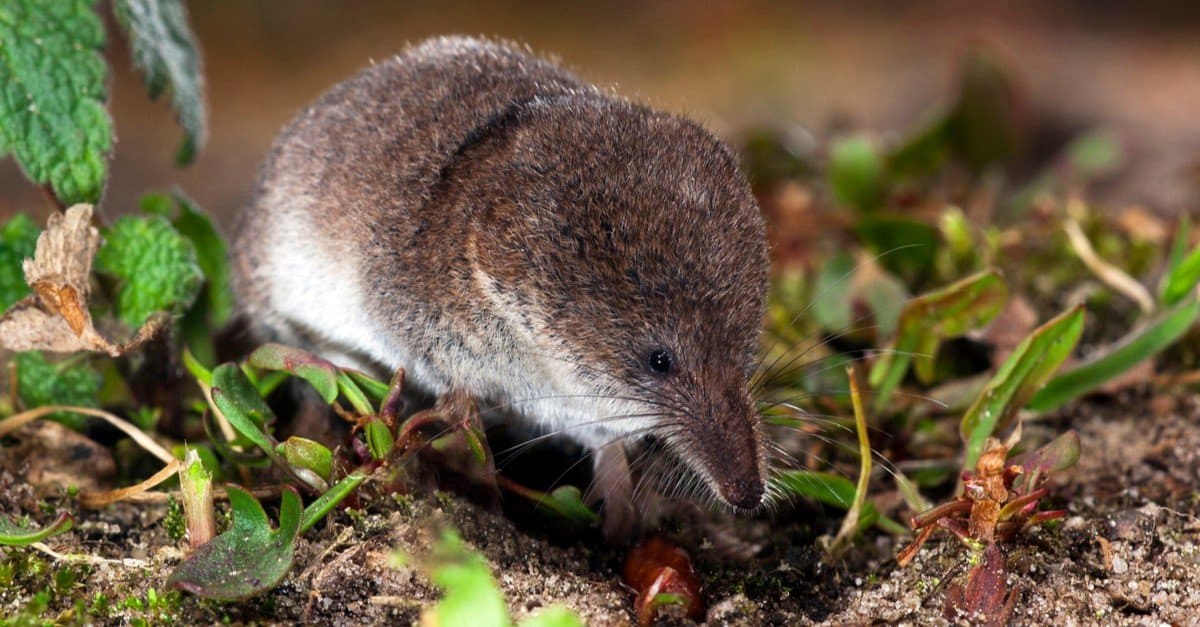nightglow.info – Shrews are small, insectivorous mammals known for their voracious appetites and high metabolic rates. Despite their size, they consume a significant amount of food daily to sustain their energy levels. In the wild, shrews primarily eat insects, but their diet also includes small vertebrates, plants, and seeds. This article will explore the natural diet of shrews, their feeding behavior, and how to care for their dietary needs in captivity.
1. Understanding Shrew Dietary Needs
Shrews have one of the fastest metabolisms of any mammal, requiring them to eat up to 80-90% of their body weight in food each day. Their high-energy needs mean that they are constantly on the hunt for food and can starve within a few hours if not fed. To keep shrews healthy and active, they need a diet rich in protein, fats, and, occasionally, carbohydrates.
Key Nutrients for Shrews:
- Protein: Essential for their energy requirements, muscle repair, and overall health.
- Fats: A source of sustained energy.
- Carbohydrates: While not as important as protein and fats, some shrews consume small amounts of plant material for additional nutrients.
2. Insectivorous Diet: The Primary Food Source
Shrews are primarily insectivorous, meaning their diet consists mainly of insects. Their sharp teeth and keen sense of smell make them efficient hunters. In the wild, shrews consume a wide range of invertebrates, including:
Common Prey for Shrews:
- Beetles: A staple in the diet of many shrews.
- Worms: Earthworms provide a rich source of protein and are easy for shrews to catch.
- Spiders: Shrews hunt spiders as part of their natural insectivorous diet.
- Crickets: High in protein, crickets are a common prey item for shrews.
- Slugs and snails: These soft-bodied invertebrates are also favored by shrews.
Insectivorous diets provide the protein and fat content that shrews need to maintain their energy levels. In captivity, shrews can be fed live or dried insects to mimic their natural feeding habits.
3. Small Vertebrates and Other Prey
Some larger species of shrews are also known to hunt small vertebrates, such as frogs, lizards, or even small rodents. These hunts provide a substantial meal, though vertebrates are less common in their overall diet. In captivity, it’s not necessary to offer small vertebrates, as shrews can thrive on a diet of insects and other protein-rich foods.
Vertebrate Prey in the Wild:
- Frogs and small amphibians: Occasionally hunted by larger shrews.
- Small rodents: Some species of shrews may prey on smaller mammals, especially when food is scarce.
4. Plant Material and Seeds: Occasional Supplements
While shrews are predominantly insectivorous, some species may occasionally consume plant material, seeds, or fungi, especially when insects are scarce. These plant-based foods provide additional carbohydrates and nutrients but are not a major part of a shrew’s diet.
Plant Material in a Shrew’s Diet:
- Seeds: Certain species of shrews have been known to consume seeds, particularly in colder months when insects are less available.
- Berries: Some shrews will eat small amounts of berries or fruit when available.
- Fungi: Shrews may occasionally consume fungi in their natural environment.
In captivity, shrews do not require a significant amount of plant material, but small amounts of seeds or fruit can be offered as a treat or supplement.
5. Feeding Shrews in Captivity
Shrews kept in captivity, whether for research, rehabilitation, or as pets, require a diet that closely replicates their wild eating habits. To ensure their health and energy levels, they should be provided with a steady supply of insects and other protein-rich foods.
Common Foods for Captive Shrews:
- Mealworms: A high-protein food source that is easy to digest and readily available.
- Crickets and grasshoppers: These are excellent choices for maintaining a shrew’s protein intake.
- Waxworms: Though high in fat, these should be fed sparingly to prevent obesity.
- Earthworms: A natural and nutritious option that many shrews enjoy.
Shrews must be fed frequently, as their high metabolism requires near-constant energy intake. Feeding them every few hours is essential, especially for younger or more active shrews. A varied diet will help ensure they get the right balance of nutrients.
6. Hydration: Fresh Water Supply
Shrews need access to clean, fresh water at all times. In the wild, they may obtain some of their moisture from the prey they consume, but in captivity, providing a water dish or a small water bottle is essential.
7. Feeding Behavior and Schedule
Shrews are active both day and night, constantly foraging for food to fuel their rapid metabolism. In captivity, a frequent feeding schedule should be maintained to mimic their natural eating patterns. Ideally, shrews should be offered food every few hours, with larger portions provided in the evening when they are most active.
8. Foods to Avoid
Some foods are harmful or inappropriate for shrews, and these should be avoided to maintain their health:
- Processed foods: Shrews should not be fed any human processed foods, as they can cause digestive issues.
- Sugary foods: Avoid offering sugary fruits or snacks that can upset their delicate system.
- Dairy products: Shrews are not able to digest dairy and should not be given milk or cheese.
9. Conclusion
Shrews have incredibly high metabolic demands, requiring a diet rich in protein and fat to keep them healthy and active. In the wild, their diet consists mainly of insects, with some species occasionally hunting small vertebrates or consuming plant material. In captivity, it is essential to provide a varied and frequent diet of insects like mealworms, crickets, and earthworms to replicate their natural eating habits. Fresh water should always be available, and caregivers should avoid offering harmful foods. By meeting these dietary needs, shrews can thrive and maintain their energetic lifestyle.
